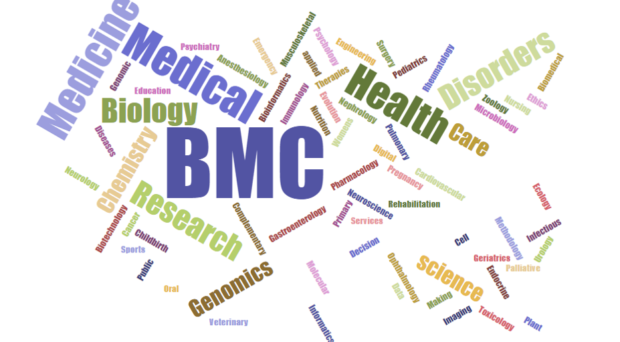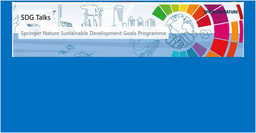Highlights of the BMC Series – May 2025
Published in Healthcare & Nursing, Computational Sciences, and Pharmacy & Pharmacology

BMC Medical Ethics - A balancing act: exploring ethical and legal concerns associated with release of personal information in alert systems for missing persons with dementia

The number of people with dementia worldwide is growing. The term dementia is used to indicate a decline in cognitive functions including progressive memory loss, inability to make decisions or solve simple problems, language decline, and disorientation even in familiar surroundings. Six in ten people living with dementia go missing at least once during their disease, putting themselves in a high risk of harm, injury, or even death.
Alert systems such as wireless emergency networks, radio, TV stations, social media or mobile and web applications, allow community members to share information about the family members who went lost and receive help in locating them. However, sharing personal information raises ethical and legal considerations. In this article, the Authors explore the view of care partners, police, experts in ethics and law, alongside with the one of people with mild dementia, regarding the release of personal information with the alert systems, in Canada and in Scotland.
While some participants lean on the side of safety over privacy, others stress the importance of sharing only the information strictly needed. Care partners raise the issue of stigmatization for those publicly diagnosed with dementia, as many people don’t know well what dementia is and what causes it. According to a lawyer, sharing personal information such as personal home addresses can increase the risk of victimization and abuse, as this information can be used by the wrong person to find the victims and defraud them. Finally, the findings highlight how important it is to look for informed consent at an early stage of disease, when the person can still make conscious decisions.
The study highlights the need to take into consideration ethical and legal aspects when releasing personal information in alert systems, in respect of the human rights of people living with dementia. This can help refine informed policies and practice regarding alert systems.
BMC Digital Health - Effectiveness of mobile applications in enhancing adverse drug reaction reporting: a systematic review

Adverse Drug Reactions (ADRs) are defined as an untoward reaction to medication. They impact patients’ health, patients’ trust in the health care system and the health care system economy. One of the main aims of pharmacovigilance is to monitor drug abuse and adverse effects. However, underreporting of ADRs negatively affects the real perception of drug safety, bringing to delays in the development of interventions to mitigate risks and potential harm to patients. In this context, accurate and timely reporting is pivotal to minimizing the risks.
This systematic review explores how effective mobile applications (apps) are in enhancing the reporting of ADRs in comparison with conventional methods, such as paper-based manual reporting. The Authors searched for articles published in the English language between 1983 and 2023, focusing on clinical trials. As result, six articles on mobile apps for detecting ADRs met the selection criteria and were included in the final analysis. The studies show how mobile apps were effective in increasing the rate of ADR reporting among patients and in providing reports of higher quality when compared to other ADR reporting methods. Additionally, mobile apps allow real-time data submission, reducing the risks of mistakes and odds of missing information.
The use of apps for ADR reporting has the potential to increase patient engagement and satisfaction, enabling them to actively participate in their care. This mechanism can also uncover rare ADRs which otherwise might be lost. Although the use of apps needs to keep into consideration challenges such as data privacy concerns and language barriers, they hold the promise to strengthen pharmacovigilance systems.
BMC Nutrition -Effectiveness of an antioxidant-rich diet on childhood asthma outcomes: A randomized controlled trial

Asthma is a common chronic disease in children, and its incidence is growing globally. Managing asthma in children can be challenging due to medication nonadherence, especially in the case of inhaled corticosteroids (ICS), leading to more severe asthma attacks and emergency visits, school absenteeism, and increased healthcare expenditure.
Asthma is associated with strong oxidant stress determined by an increase of oxidant forces and a reduction of antioxidant defense mechanisms, which bring to airway inflammation in asthmatic patients. The Authors of this study aim to compare the clinical outcomes, the serum antioxidant levels and the pulmonary function in Thai children, aged 4–15 years. The study has been designed as a parallel, randomized, controlled trial where the control group received usual care, and the experimental group received usual care and an antioxidant-rich diet, based on tomato juice (64%) mixed with other fruit juice, for a recommended dose of 100 ml per day.
The findings show how at the end of the trial, at 8-week intervals, clinical outcomes improved for the experimental group based on the results of the Asthma Control Test (ACT) and Pediatric asthma quality of life questionnaire (PAQLQ). However, there were no changes in ICS dose usage, pulmonary function, and serum antioxidant levels.
Overall, the adoption of antioxidant-rich diet supplementation with usual care holds the potential to improve quality of life in asthmatic children.
BMC Primary Care - Arts on prescription intervention for primary healthcare patients with poor mental health or social isolation: a mixed-method study

Based on the World Health Organization, mental health disorders will become the leading cause of disability by 2030. Despite the mental health crisis being globally recognized as a critical issue, primary healthcare systems still have limited tools to provide the best care for patients experiencing mental health and social problems.
Initiatives such as Arts on Prescription (AoP) have proved to be useful in enhancing psychosocial and social wellbeing, through a mechanism used by primary healthcare practitioners to refer patients to non-clinical support services. This study aims to investigate the psychosocial effect of a 10-weeks AoP program in 112 patients from 18 primary healthcare centers in Scania, who were referred by primary healthcare providers with stress, anxiety, depression or loneliness/social isolation. During the program, the patients engaged in a variety of aesthetic and creative activities based on various disciplines such as literature, music, singing, visual and performing arts.
The patients’ interview reveals the challenges that the patients face to obtain the right diagnosis, adequate care and timely access to treatment. The findings show how the AoP program significantly enhanced mental health and wellbeing, based on the Short Warwick Edinburgh Mental Wellbeing Scale, particularly among women and participants with poorer self-rated health.
Integrating AoP programs into primary healthcare could offer valuable alternative or complementary care for patients with poor mental health.
BMC Anesthesiology - Bridging the gap between scientists and clinicians: addressing collaboration challenges in clinical AI integration

Artificial intelligence (AI) is changing modern healthcare, offering new tools to enhance diagnostic accuracy and predictive analysis. AI can also improve patient care in perioperative medicine, offering personalized insights, helping anesthesiologists and surgeons to predict complications related to anesthesia and surgery, ultimately leading to better patient outcomes.
In this comment article the Authors investigate the barriers that need to be addressed to enhance an interdisciplinary collaboration between scientists and healthcare professionals in clinical artificial intelligence (AI) integration.
While the AI scientists are focused on improvements in data processing and development of new algorithms, often working far off the clinical environment, the healthcare professionals prioritize clinical workflow with special attention to ethical considerations and patient safety. The different intellectual framework can lead to unrealistic expectations of the use of AI in healthcare, with AI models that do not consider all the factors involved in clinical tasks. Moreover, AI in medicine presents challenges related to data privacy, bias in selecting target populations and transparency.
Ideally, medical AI research centers can help to bring together AI scientists and healthcare professionals, facilitating the translation of AI advancements and innovations into the clinical setting. Where the realization of these centers is not feasible due to financial constraints, a translational role with both expertise in AI and healthcare, could facilitate communication between AI scientists and physicians. Education and training aimed at providing AI expertise in medical schools, and healthcare knowledge to future AI scientists in computer science programs, can equip professionals with the skills needed to bridge the gap between AI and medicine and hold the promise to a fruitful collaboration. In conclusion, the article highlights the importance of promoting interdisciplinary cooperation and reducing communications barriers, with a focus on diversity and inclusivity to promote better care for patients.
Follow the Topic
-
BMC Digital Health

BMC Digital Health considers research on all aspects of the development and implementation of digital technology in both medicine and public health, such as mobile health applications, virtual healthcare and wearable technology, as well as the role of social media in digital health.
-
BMC Primary Care

Previously known as BMC Family Practice, this is an open access, peer-reviewed journal that considers articles on all aspects of primary health care research.
-
BMC Nutrition

BMC Nutrition is an open access, peer-reviewed journal that considers articles on all aspects of nutritional sciences.
-
BMC Anesthesiology

This journal considers articles on all aspects of anesthesiology, critical care, perioperative care and pain management, including clinical and experimental research into anesthetic mechanisms, administration and efficacy, technology and monitoring, and associated economic issues.
-
BMC Medical Ethics

This journal is an open access journal publishing original peer-reviewed research articles in relation to the ethical aspects of biomedical research and clinical practice, including professional choices and conduct, medical technologies, healthcare systems and health policies.
Related Collections
With Collections, you can get published faster and increase your visibility.
Extracorporeal membrane oxygenation
BMC Anesthesiology is calling for submissions to our collection, Extracorporeal membrane oxygenation.
Extracorporeal membrane oxygenation (ECMO) is as a critical life-saving technology used in patients with severe respiratory and cardiac failure. This advanced therapy involves the temporary support of a patient's heart and lungs using a machine that oxygenates blood outside the body. As clinical experience with ECMO has expanded, so too has our understanding of its applications, ranging from acute respiratory distress syndrome (ARDS) to cardiogenic shock. This Collection aims to compile diverse research exploring the utilization, outcomes, and best practices surrounding ECMO, focusing on both veno-venous and veno-arterial configurations.
Advancements in ECMO techniques and technologies have significantly improved patient outcomes in critical care settings. Enhanced patient selection criteria, better anticoagulation strategies, and the development of smaller, more portable devices have expanded the reach of ECMO therapy. Furthermore, recent studies have elucidated the role of ECMO in managing complex cases, leading to increased survival rates. A comprehensive understanding of these developments is essential for optimizing ECMO utilization and ensuring that this resource-intensive intervention is employed effectively.
We invite submissions from all aspects of this field, including, but not limited to:
Outcomes of veno-venous ECMO in ARDS patients
Role of ECMO in mechanical circulatory support
Innovations in extracorporeal life support technology
Anesthesia considerations for ECMO patients
Continued research in ECMO may yield exciting future advancements, including the integration of artificial intelligence for real-time monitoring, enhanced patient-tailored therapy, and improved biocompatibility of circuit components. These innovations have the potential to increase the safety and efficacy of ECMO, making it an even more valuable tool in critical care medicine.
All manuscripts submitted to this journal, including those submitted to collections and special issues, are assessed in line with our editorial policies and the journal’s peer review process. Reviewers and editors are required to declare competing interests and can be excluded from the peer review process if a competing interest exists.
Publishing Model: Open Access
Deadline: Feb 17, 2026
Managing perioperative neurocognitive disorders in geriatric patients
BMC Anesthesiology is calling for submissions to our collection, Managing perioperative neurocognitive disorders in geriatric patients.
Perioperative neurocognitive disorders (pNCD) are a significant concern in geriatric patients, characterized by a decline in cognitive function following surgery. This can manifest as confusion, memory deficits, and difficulty concentrating, potentially affecting recovery and overall quality of life. As the population ages and surgical procedures become more common among older adults, understanding the mechanisms behind pNCD and identifying effective management strategies have become increasingly important. This Collection aims to explore various aspects of pNCD, including its prevalence, risk factors, and the role of anesthetic techniques in its development.
Addressing pNCD is crucial not only for enhancing patient outcomes but also for reducing healthcare costs associated with prolonged hospitalization and rehabilitation. Advances in neuromonitoring and the application of tailored anesthetic protocols have shown promise in mitigating cognitive impairment in older patients. Emerging research on perioperative care strategies emphasizes the need for interdisciplinary approaches to manage delirium and cognitive dysfunction effectively.
Advances in personalized medicine could enable clinicians to develop targeted interventions that not only prevent neurocognitive decline but also enhance postoperative recovery. Future studies may also explore the integration of cognitive training and rehabilitation into the perioperative framework, ultimately fostering improved long-term cognitive health in older adults.
We invite submissions from all aspects of this field, including, but not limited to:
Understanding risk factors for pNCD
Anesthetic techniques and cognitive outcomes
Neuromonitoring in geriatric anesthesia
Strategies for managing delirium in older patients
Impact of perioperative care on patient outcomes
All manuscripts submitted to this journal, including those submitted to collections and special issues, are assessed in line with our editorial policies and the journal’s peer review process. Reviewers and editors are required to declare competing interests and can be excluded from the peer review process if a competing interest exists.
Publishing Model: Open Access
Deadline: Jun 25, 2026

Please sign in or register for FREE
If you are a registered user on Research Communities by Springer Nature, please sign in
This is a very important and sensitive topic. Alert systems for missing persons with dementia are crucial, but releasing personal information raises serious ethical and legal concerns related to privacy and consent. It's essential to find a balance between sharing enough information to help locate the individual and protecting their dignity and confidentiality.<a href="https://thesubwaysurfer.com">mental illness</a>